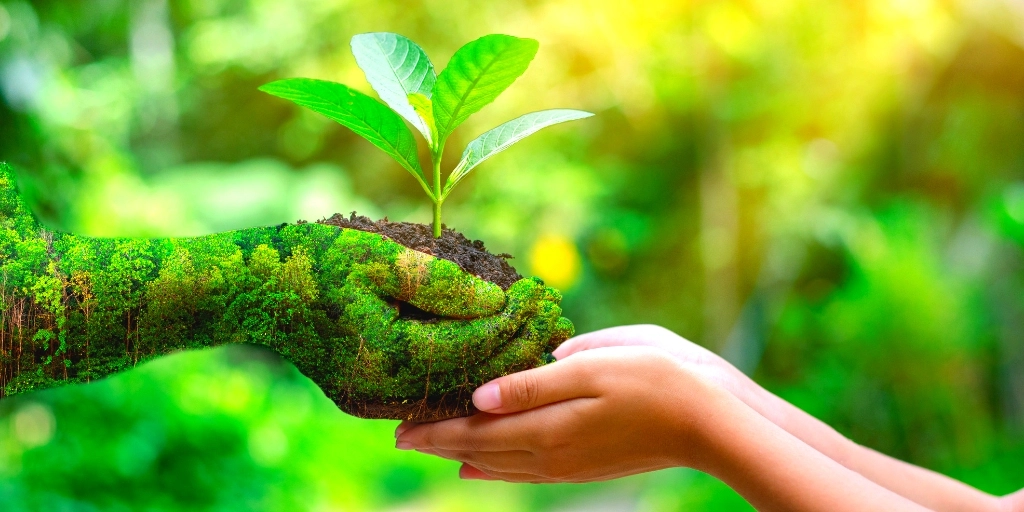
FMCG companies lead eco-friendly initiatives in Nigeria
By Oghale Mafuru
Sustainability is a hot topic and it occupies the front burner among business organizations and even in the comity of nations. It is an increasingly important issue especially as climate change continues to affect the quality of life on the planet.
Presently, most parts of the world battle with various climate issues particularly floods in Africa, earthquakes, typhoons, mudslides in Asia, bushfires, and hurricanes in the Americas. This has heightened discussions and adoption of sustainability measures such as the Sustainable Development Goals, SDG among United Nations member states, and sundry initiatives by business/corporate organizations.
In Nigeria, apart from working on the SDGs at the governmental level, Fast-Moving Consumers Goods, FMCG companies are moving swiftly to curtail the adverse effect of their operations on the environment by producing eco-friendly products and increasing sustainable supply chains where waste is eliminated.
Some of the companies that are frantically seeking alternative measures to reduce plastic pollution which is a major threat to the environment, often resulting in blocked drainages and environmental degradation include Nestle, Unilever, and Coca-Cola among others.
Nestlé is intensifying actions to make 100% of its packaging recyclable or reusable by 2025 and to reduce its use of virgin plastics by one-third in the same period. Nestle Nigeria is aligning with the global vision for sustainability through partnerships with manufacturers and other stakeholders within the packaging ecosystem to develop new types of packaging methods that are more eco-friendly.
“We are also ensuring that Nestle is a part of the action to eliminate indiscriminate disposal of plastics and this we are doing through public education and awareness campaigns. All hands must be on deck to address some of the environmental issues facing the world, especially in Africa” according to the company.
In furtherance of the corporate vision on sustainability, Nestle Nigeria partnered with the International Climate Change Development, ICCD, Initiative to train primary pupils on a more sustainable approach to managing and recycling waste and becoming better stewards of the planet.
The company had embarked on a series of initiatives prior to this partnership. One such effort was the Maggi Mega Millions held in Lagos, Nestlé Nigeria led the collection and disposal of over 100 million Maggi wrappers from the environment.
For Coca-Cola Nigeria, the Packaging Vision, ‘Nigeria Without Waste’ is possible. Under the tripartite pillars of ‘Design, Collect, and Partner’ with others to improve packaging sustainability, the company is working to build better bottles with over 1 billion bottles recycled.
“Coca‑Cola Nigeria is working to build better bottles because packaging should not harm our world. The New Twist Eva 50cl Bottle demonstrates our commitment to rethinking our packaging. It has 18% less plastic and is designed to make segregation simple for consumers. Our goal is to make our entire consumer packaging 100% recyclable globally. Simply put, if someone wants to recycle one of our packages, they should be able to.
“Coca‑Cola Nigeria and its bottling partner Nigeria Bottling Company are leading the industry to help collect and recycle a bottle or can for every one we sell by 2030. We’re working to bring people together to help us collect and recycle a bottle we sell. Regardless of where it comes from, we want every package to have more than one life” the company added.
As part of initiatives to reinforce the internal adoption of the recycling message, Coca‑Cola Nigeria recently launched an internal campaign aimed at sensitizing stakeholders to the company’s “World Without Waste” commitment and changing waste disposal habits within communities.
The company signed a Memorandum of Understanding with the Lagos State and the Food and Beverage Recycling Alliance (FBRA) to clean up and prevent waste pollution from plastics and other food and beverage packaging on waterways.
The programme will focus on evacuation for recycling of packaging waste collected from the four inland waterways and also integrate over 1600 women and youths in the exercise where they could earn a living while assisting to collect and dispose of waste.
The recovery of plastic waste from inland waterways to stem its flow into major rivers and the oceans is a key focus of Coca‑Cola’s World Without Waste initiative.
Unilever says it is keeping plastics in the system, and out of the environment, by buying recycled plastic which is sometimes called post-consumer recycled plastic (PCR). It is also ramping up how much-recycled plastic is being used. In pursuit of a Waste-Free World, Unilever is transforming its packaging and pushing hard to create a circular economy for waste.
“We’re taking steps towards a waste-free world through the Unilever Compass. We’re cutting plastic waste by using less plastic, better plastic, or no plastic at all and calling for a fast transition to a circular economy.
“We’re completely rethinking our approach to packaging and our framework of ‘less plastic, better plastic, no plastic’ guides everything we do. It’s underpinned by goals to halve our use of virgin plastic, to ensure all our packaging is reusable, recyclable, or compostable, and to increase the use of recycled plastics. We’re also supporting better waste infrastructure to collect and process plastic packaging”.
Unilever declared that its strategic goal in curbing environmental degradation is “to have 50% virgin plastic reduction by 2025, including an absolute reduction of 100,000 tonnes, recycle 25% plastic by 2025, Collect and process more plastic than it sells by 2025, ensure 100% reusable, recyclable or compostable plastic packaging by 2025, halve food waste in our operations by 2025 and maintain zero waste to landfill in our factories.”
Although companies in the FMCG sector are working hard to curb the hazardous impact of waste on the environment, government intervention through actionable policies is vital to the enforcement of eco-friendly initiatives. It will also provide direction and streamline organizations toward the realization of the stated policy goals.




Comment
No comments found.